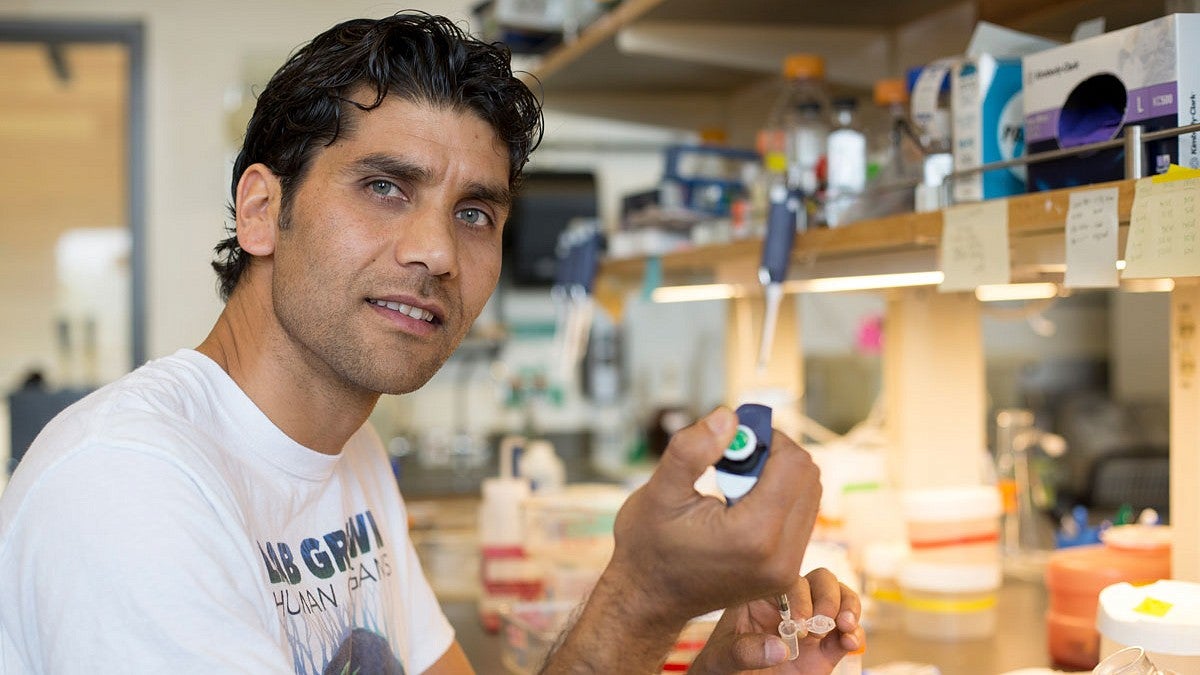
“The brain is a world consisting of a number of unexplored continents and great stretches of unknown territory,” said Santiago Ramón y Cajal, a Spanish neurologist from the early 20th century. This is what motivates Mubarak Hussain Syed to work in neuroscience in the Doe Lab at University of Oregon.
Syed grew up in a small village in Kashmir with his parents and two brothers. They did not have a phone or internet, and sometimes they didn’t have electricity. Syed was encouraged by his parents to go to school and work hard in his classes. Reading books and magazines, Syed found an interest in science and received a bachelor’s degree in botany, zoology, and chemistry. After he received his master’s in biochemistry at University of Kashmir, he participated in a developmental biology workshop with the National Center for Biological Science (NCBS) where he first worked with Drosophila (fruit flies).
Since then, Syed has been working as an international scholar at the UO to solve questions about human brain development and functions by studying fruit flies. “Drosophila is a genetically tractable organism; we can turn a gene on or off any time we want to and above all 75% of their genes are the same as ours,” said Syed. Fruit flies are an excellent model system to understand the development and function of human brain cells.
Syed recently led a study that found that hormones regulate brain development in fruit flies, which shares a link to Thyroid hormones in humans. “Once we understand how a normal brain develops and functions, and what goes wrong in neurological disorders, then we will be able to treat patients suffering from various brain disorders,” said Syed.
Syed will continue exploring the diversity of human brain cell types to determine their roles in health and disease. He hopes to continue his research at the UO to help find treatments for human neurodevelopmental disorders.
